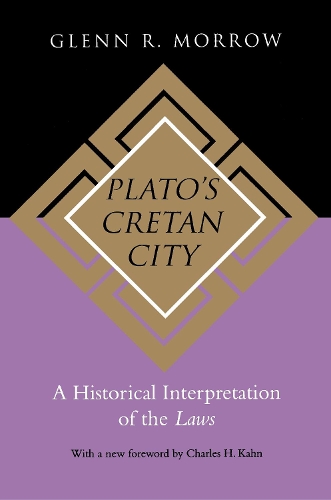
Plato's Cretan City: A Historical Interpretation of the Laws
(Paperback, Revised edition)
Publishing Details
Plato's Cretan City: A Historical Interpretation of the Laws
By (Author) Glenn R. Morrow
Princeton University Press
Princeton University Press
3rd January 1994
Revised edition
United States
Classifications
Professional and Scholarly
Non Fiction
184
Physical Properties
Paperback
648
Width 197mm, Height 254mm
936g
Description
This is a thorough investigation into the roots of Plato's "Laws", as well as an explication of Plato's ideas on legislation and social institutions. A dialogue among three travellers, the "Laws" proposes a detailed plan for administering a new colony on the island of Crete. In examining this dialogue, Glenn Morrow describes the contemporary Greek institutions in Athens, Crete and Sparta on which Plato based his model city, and explores the philosopher's proposed regulations concerning property, the family, government and the administration of justice, education and religion. He approaches the "Laws" as both a living document of reform and a philosophical inquiry into humankind's highest earthly duty.
Reviews
"[A] landmark in Platonic scholarship. . . . Every informed interpretation of Plato's Laws in the last thirty years has built on the foundation that [Morrow] provided."from the foreword
Author Bio
Glenn R. Morrow (1895-1976) was Adam Seybert Professor of Moral and Intellectual Philosophy at the University of Pennsylvania.
